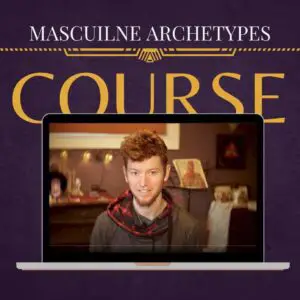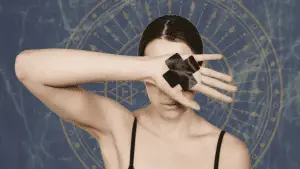Books can be an amazing guide when you are first exploring Shadow Work.
Over the years I have read a lot!
Currently, I have 11 books on the Shadow in my personal library.
In this article, I will be sharing a list of the five best books you can read to explore the Shadow. I will be sharing my own experience with the books, as well as the pros and cons.
Getting started? Check out this beginner’s guide to Shadow Work.
1. A Little Book on the Human Shadow
By Robert Bly
Robert Bly is a renowned writer that wrote the book Iron John: A Book about Men, which is the most read book on Masculinity that I know.
Most people are unfamiliar with his other books, but A Little Book On The Human Shadow shines a lot of light onto the concept of healing the Shadow. The book is a collection of talks from Robert Bly, poems, and ethics stories.
It can seem a little disjointed at times, and there are definitely good chapters and bad ones.
That being said it is a great primer for newcomers to the notion of the shadow.
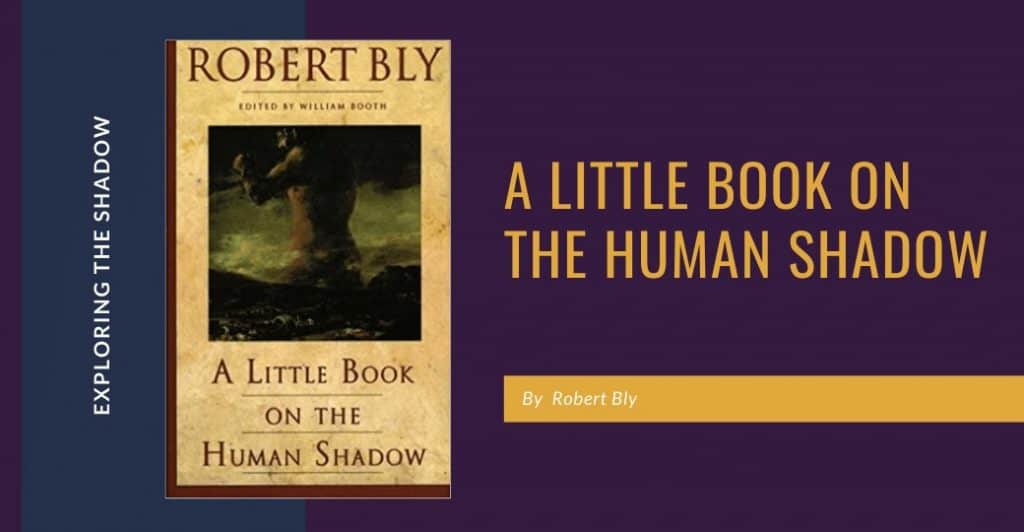
Pros: Very short book that gets right to the point with interesting stories.
Cons: It wanders around a bit, and might not be the best for beginners.
>>> Grab a copy of the book here
2. Owning Your Own Shadow
By Robert A. Johnson
Robert A. Johnson is another classic author that has written about Jungian Depth Psychology, Archetypes, and the masculine psyche.
His book, Owning Your Own Shadow, is a really great introduction to Shadow Work. The book uses interesting stories and mythology to share deep insight. I found myself really engaged by the writing and highly recommend this book.
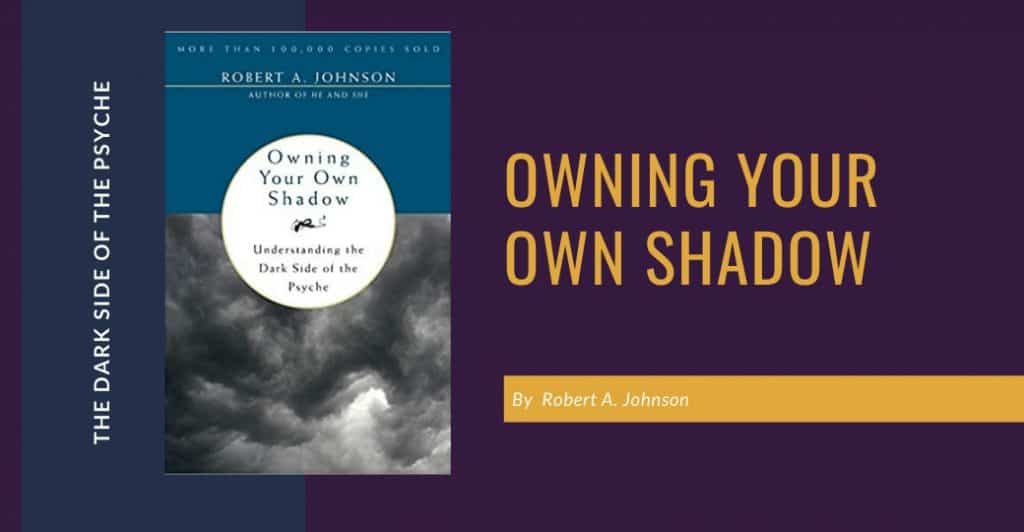
Pros: Very short book that feels easy to read and isn’t too heavy on psychological jargon.
Cons: I don’t have anything bad to say about this one. Maybe it was too short and I could have used more.
>>> Grab a copy of the book Owning your own shadow
3. Romancing the Shadow
By Connie Zweig and Steven Wolf
The book Romancing the Shadow is a good overlap between academic depth and everyday examples. The book shares a lot of myths, such as King Arthur, and stories as a vehicle to understand the shadow.
The book is a little dense though and has an assumption that the reader has already read a lot on Jungian Psychology.
It’s a great book but not for the light-hearted.
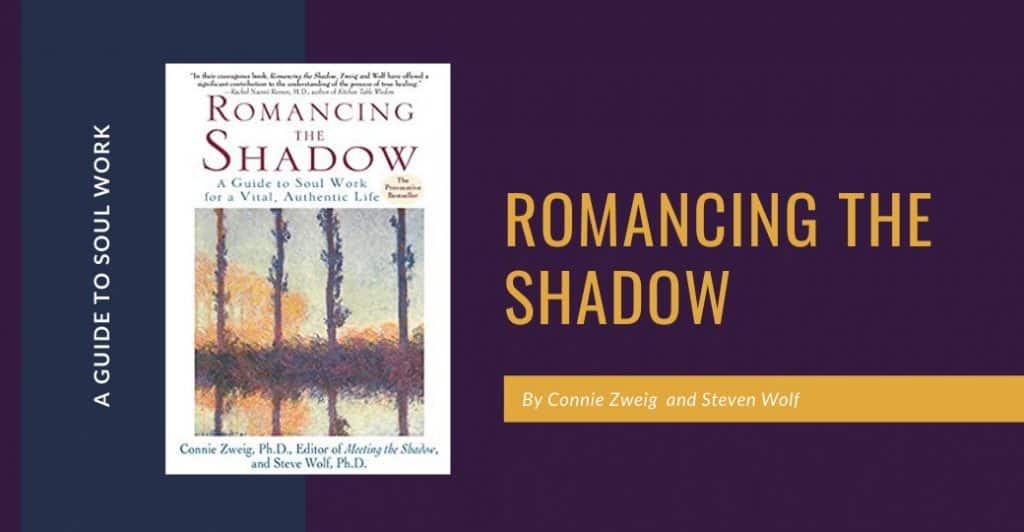
Pros: Indepth exploration on the shadow that takes a detailed approach to how you would use this information in your own development.
Cons: This book is very academic and I don’t suggest it for beginners.
>>> Grab a copy of the book here
4. Meeting The Shadow
By multiple writers
The book, Meeting the Shadow is a collection of writings from other authors. It actually has my favorite chapter from the Robert Bly book, writings from Carl Jung, and other important figures in Shadow Work
I think this is an amazing book, but it might not be the best starting point. If you have a basic understanding of the Shadow, archetypes, and Jungian theory then this is a fantastic book.
The book takes a much more clinical and academic approach, so if you are looking for the more spiritual aspects of Shadow Work this might not be the one for you.
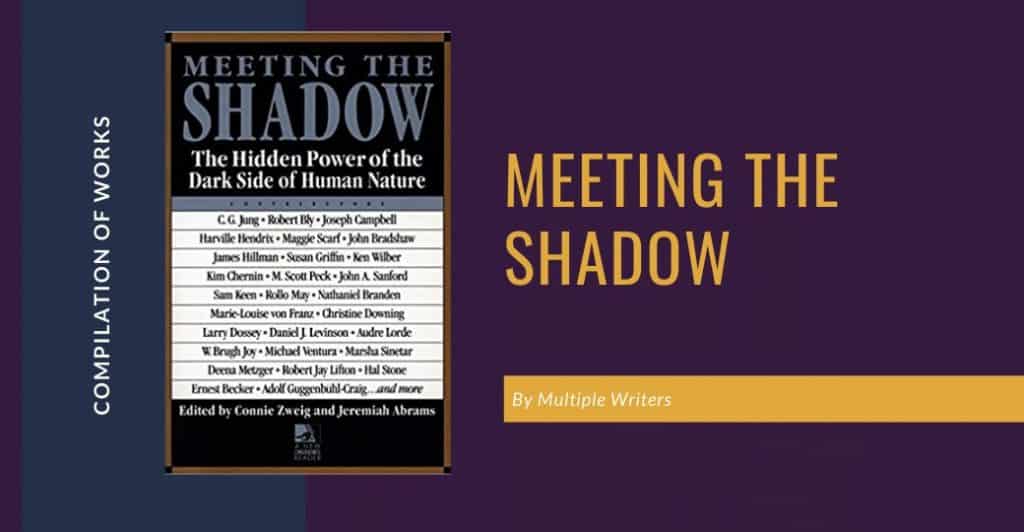
Pros: Amazing collection of articles from renowned psychologists. It’s a good overview of different theories around the Shadow.
Cons: This book is DENSE and not a good starter for beginners. You will want a basic understanding of Depth Psychology.
>>> Grab a copy of the book here
5. The Archetypes and The Collective Unconscious
By Carl Jung
How could I have a list of books about the Shadow without including a book by Carl Jung?
C.G. Jung was the psychologist that coined the term “Shadow Work.” This book goes over the fundamental concepts behind the Shadow, Archetypes, and how to integrate the psyche. In the book, Jung talks about the Mother, Father, Child, Anima/Animus, Trickster, and Shadow archetypes.
If you have read at least two other books on the Shadow, then I highly suggest The Archetypes and The Collective Unconscious.
Here is a great example of the writings of Carl Jung that are found in this book:
“I have noticed that people usually have not much difficulty in picturing to themselves what is meant by the shadow, even if they would have preferred instead a bit of Latin or Greek jargon that sounds more “scientific.” But it costs them enormous difficulties to understand what the anima is. They accept her easily enough when she appears in novels or as a film star, but she is not understood at all when it comes to seeing the role she plays in their own lives, because she sums up everything that a man can never get the better of and never finishes coping with. Therefore it remains in a perpetual state of emotionality which must not be touched. The degree of unconsciousness one meets within this connection is, to put it mildly, astounding. Hence it is practically impossible to get a man who is afraid of his own femininity to understand what is meant by the anima.” ― C.G. Jung, The Archetypes and the Collective Unconscious
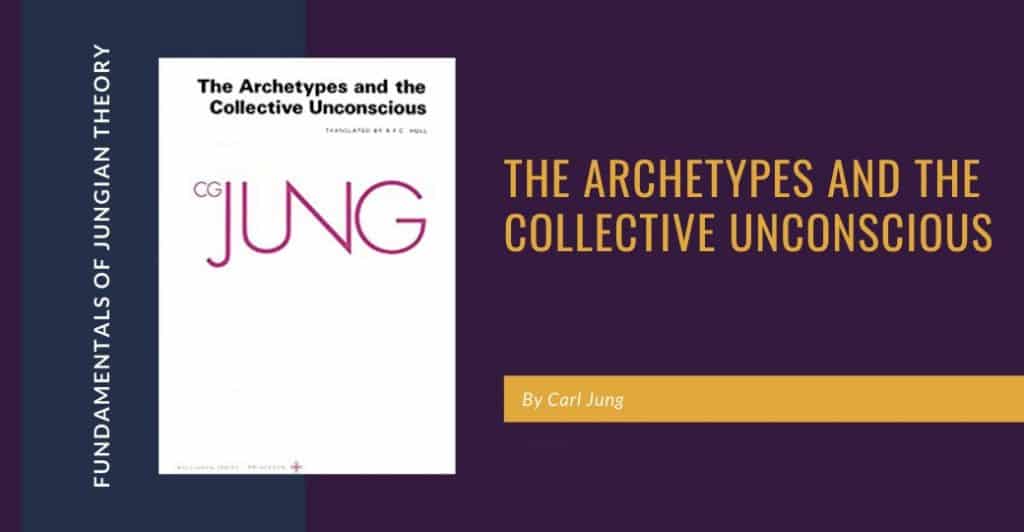
Pros: One of the original sources about Shadow Work and a deep dive into the theory.
Cons: You should have a solid foundation in Jungian Psychology before reading this book.
>>> Grab a copy of the book here
IN CONCLUSION:
If you are just starting to explore Shadow Work I highly suggest the book Owning Your Own Shadow by Robert Johnson.
That book is concise and gives deep insights into the Shadow.
If you have a basic understanding of Shadow Work, I would move on to the book by Robert Bly or the compilation of articles found in Meeting The Shadow.
Only after reading a few books would I move on to Romancing the Shadow or The Archetypes and The Collective Unconscious.
That being said, I have enjoyed each of these books.
They have given me a deeper understanding of my shadow and helped me unravel negative behaviors/traumas that have held me back.
I hope this list has been helpful to you in your journey.
If you are interested in reading more about the Shadow, check out these articles:
